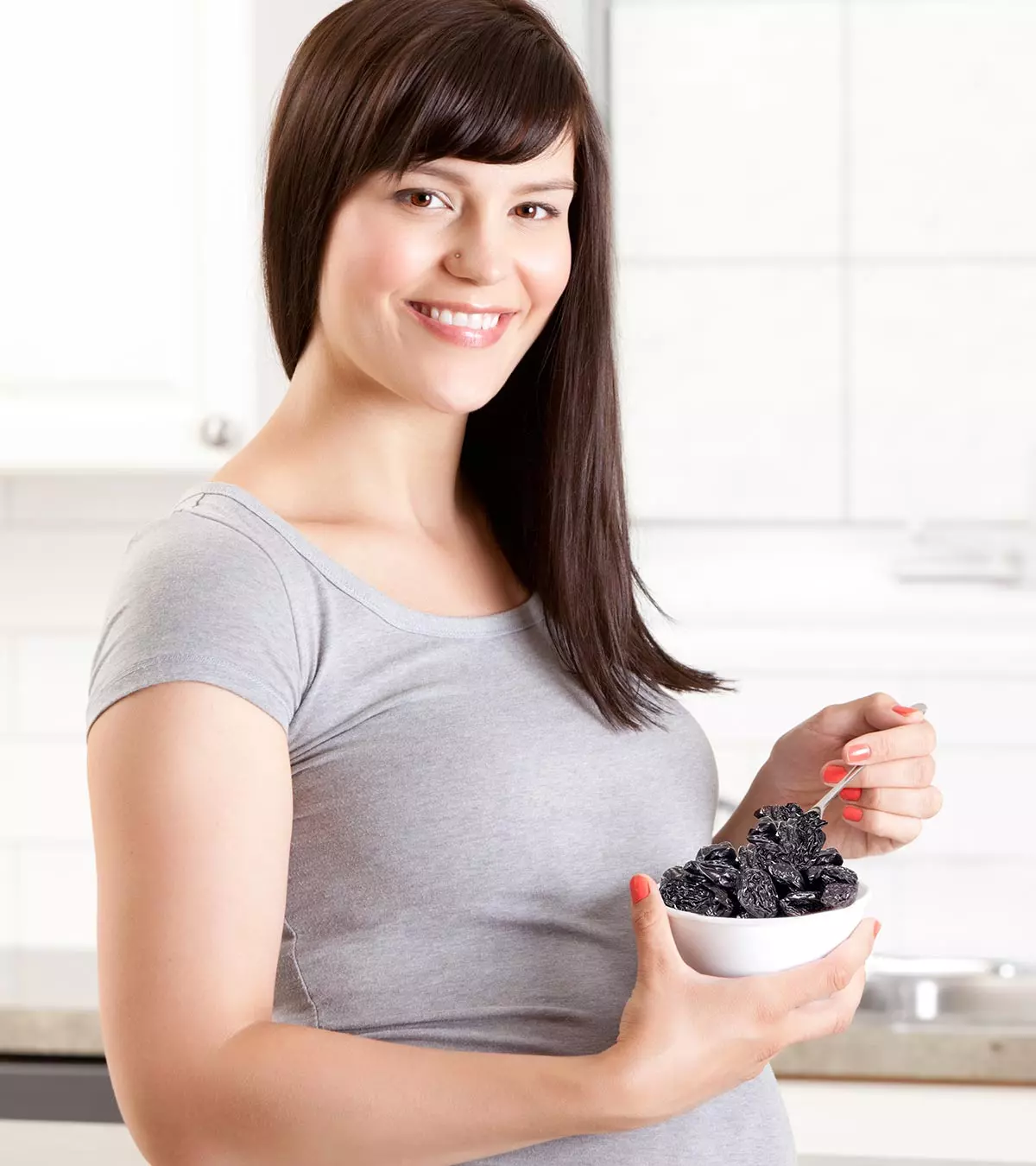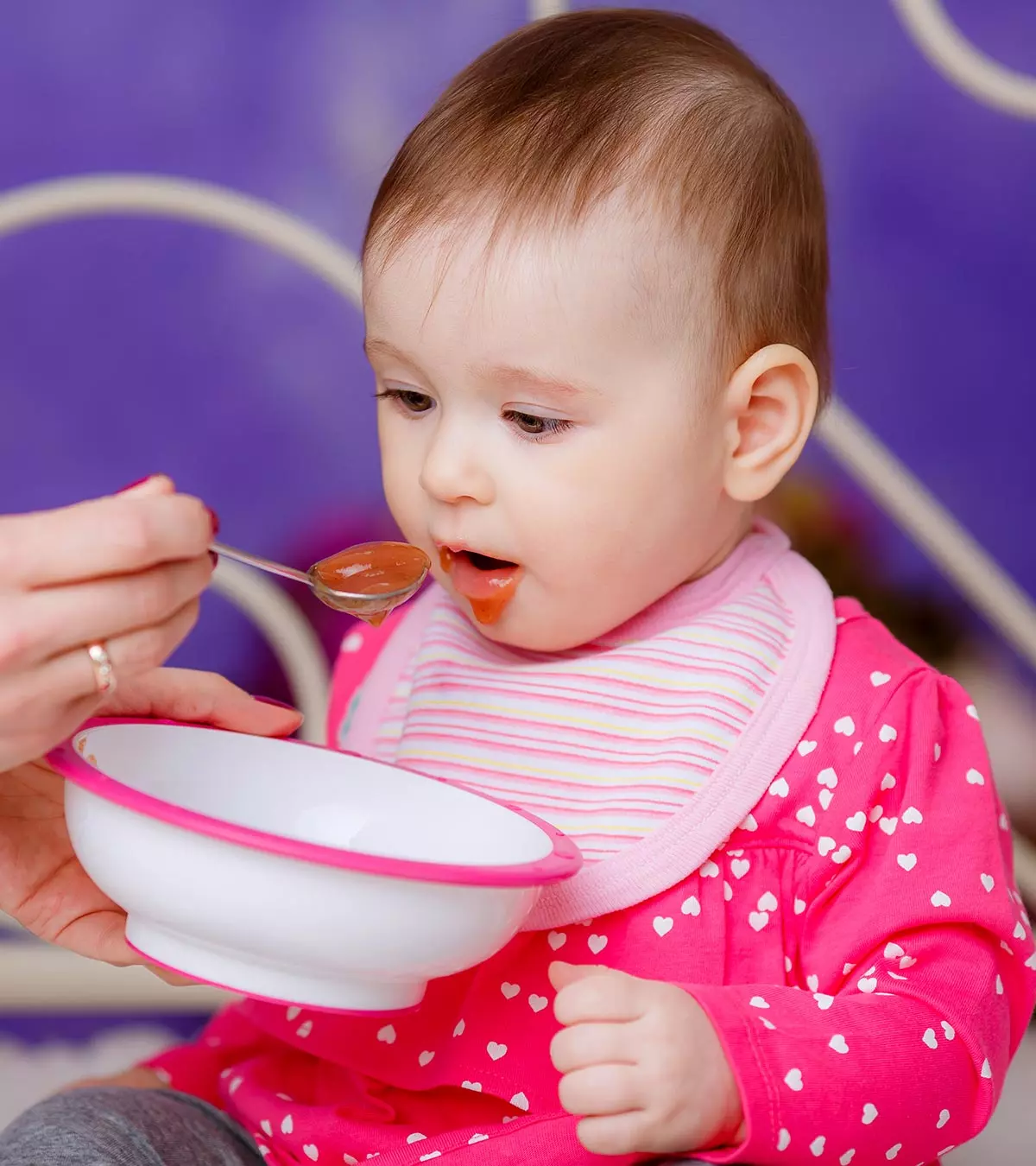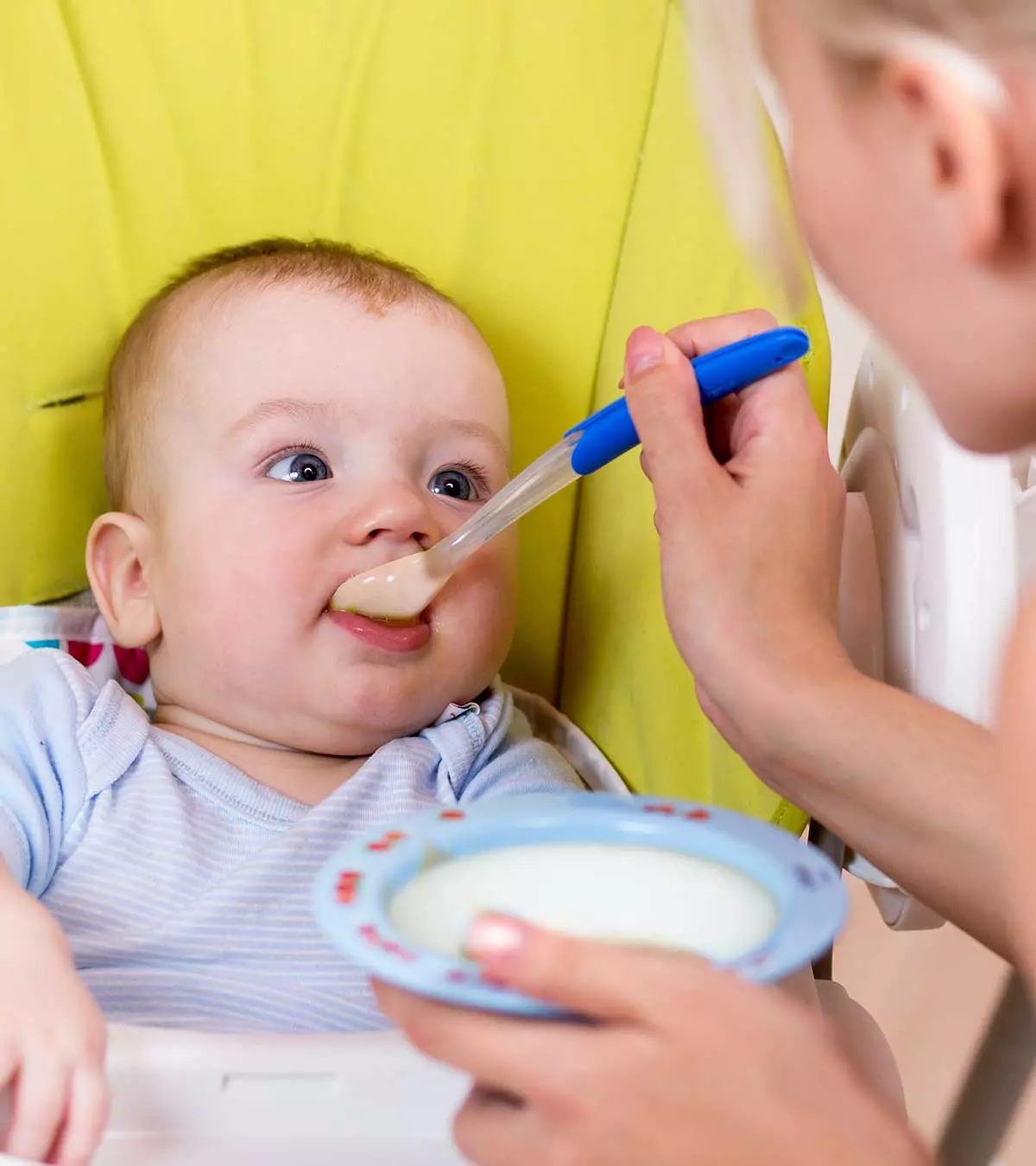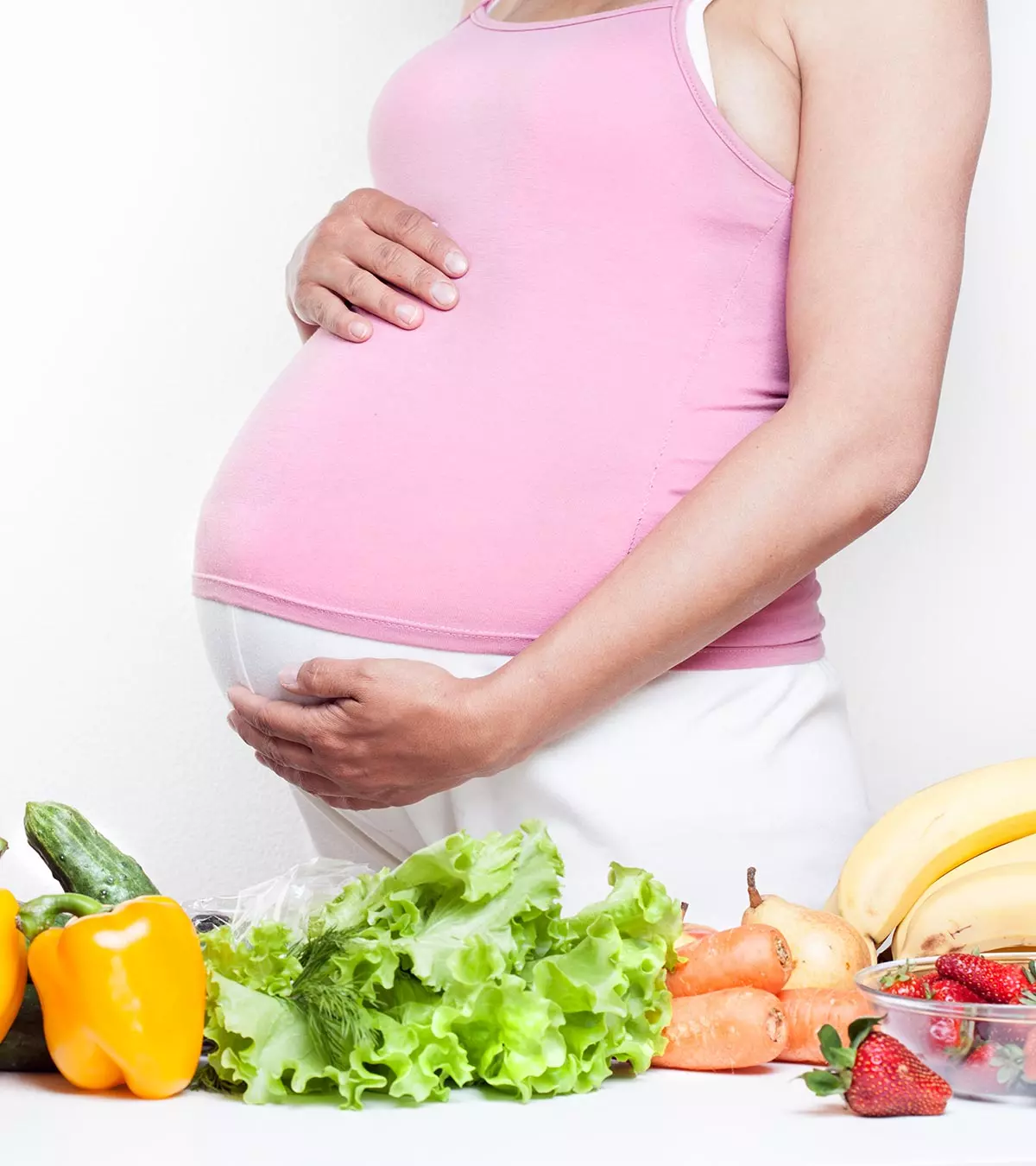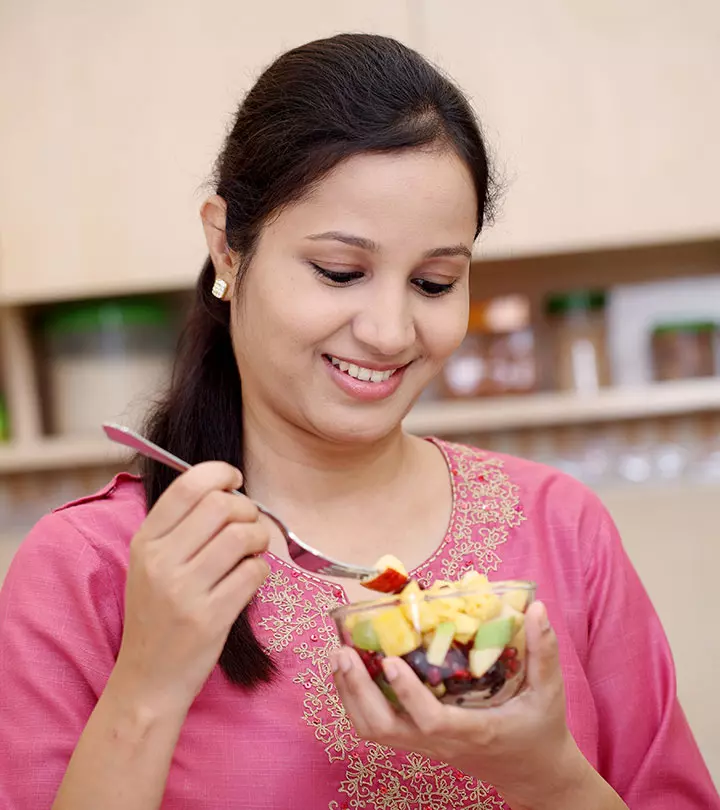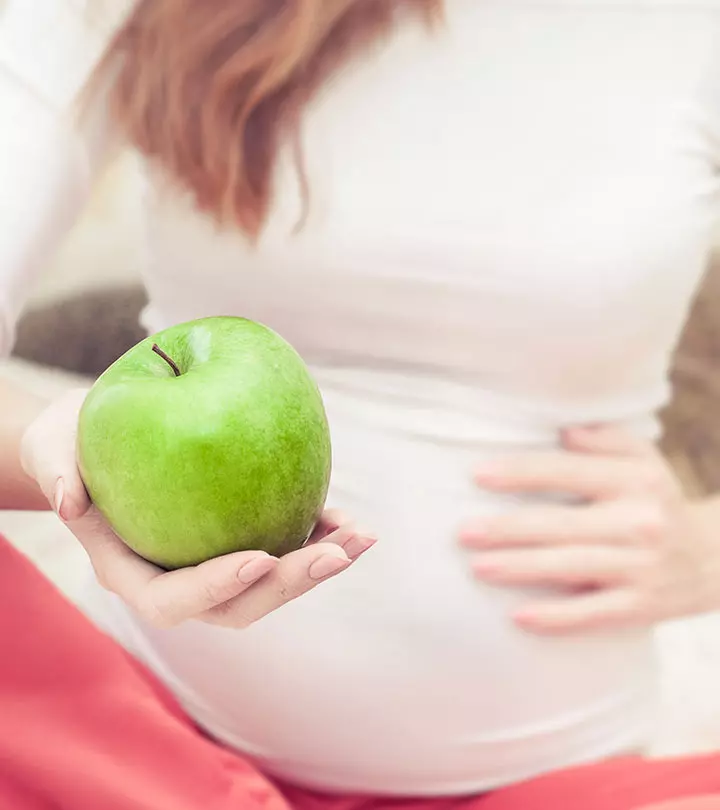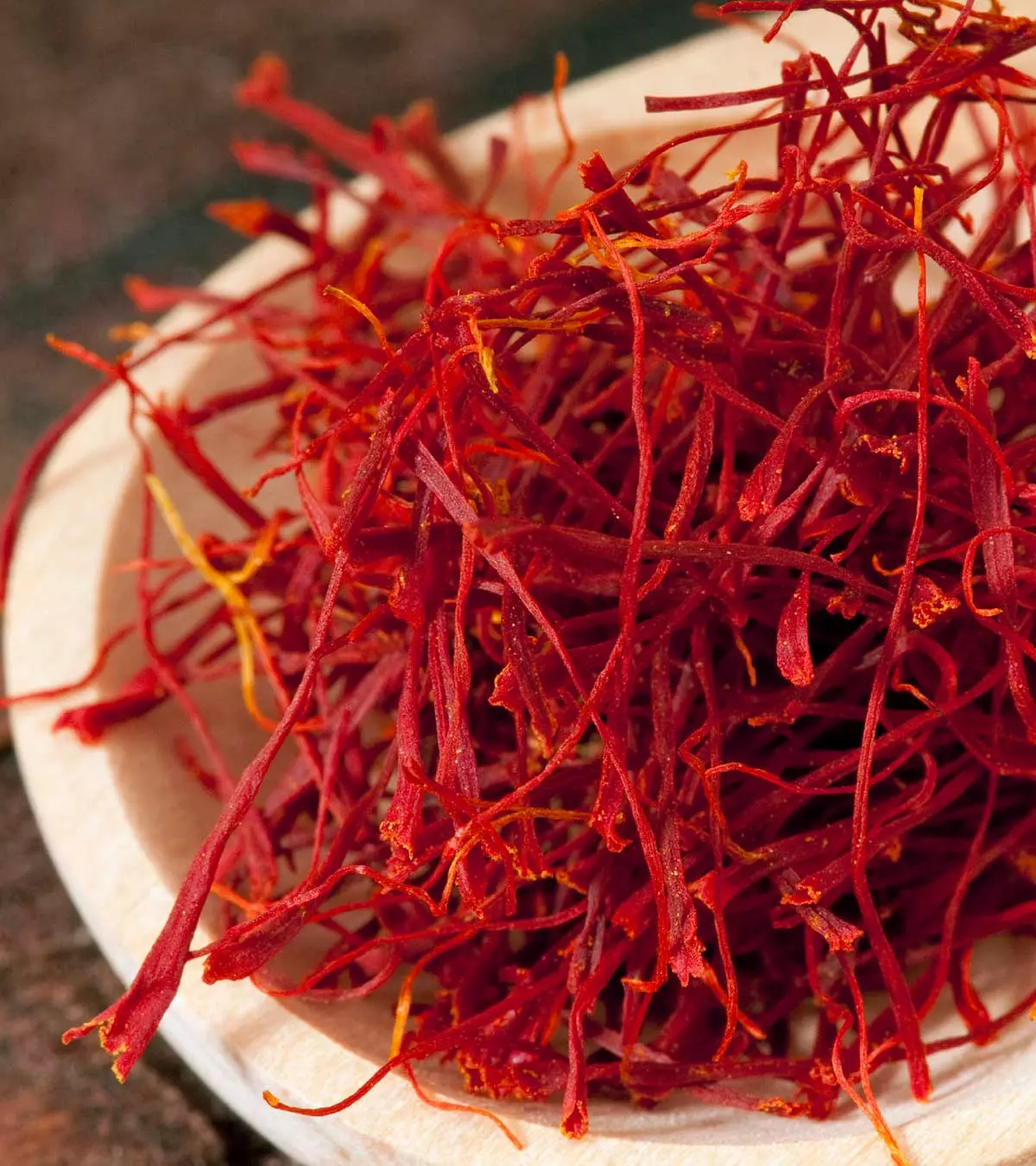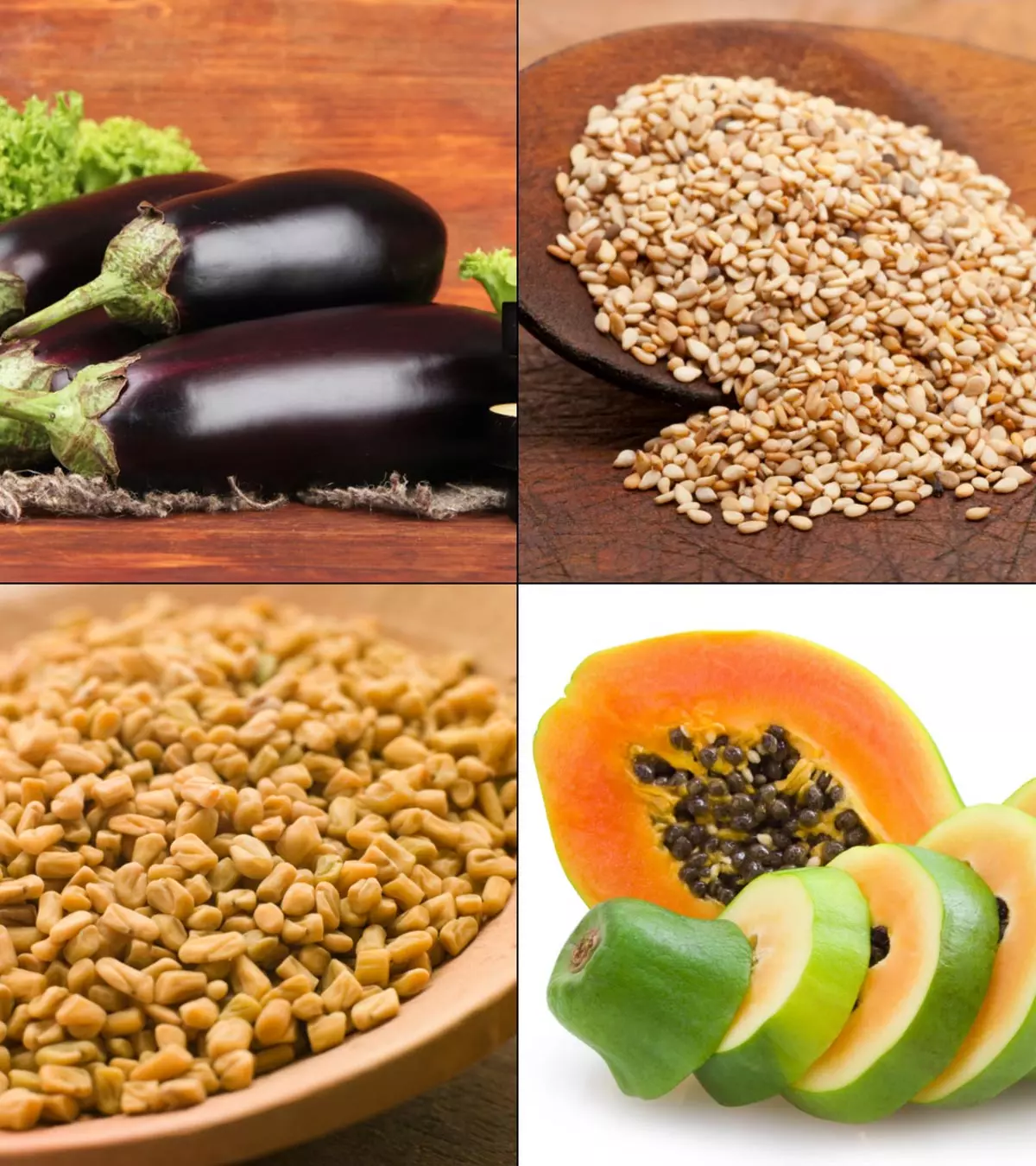
Image: Shutterstock
Pregnancy brings along a lot of responsibilities for the mother-to-be. One of them is knowing what to eat and what not to. Here we present a list of Indian foods to avoid during pregnancy to help you adhere to the dietary guidelines and meet your nutritional needs while preventing complications.
The food you eat while pregnant has an impact on both maternal health and fetal health. Some foods have been known to induce abortion or premature delivery, while others can affect fetal brain development. Even though your near and dear ones may suggest you some meal plans, their contradicting advice can cause significant confusion.
So, if you are anxious and feeling clueless about things you should refrain from eating for a healthy pregnancy, continue reading. We help you learn more about food items that a mother-to-be should avoid eating through this post.
Key Pointers
- High latex content in Raw Papaya can cause labor or abortion.
- Raw Eggplant contains Solanine, a toxin that may induce allergies.
- Eating a lot of fresh pineapples might cause labor due to the enzyme bromelain.
- Fennel and Fenugreek seeds contain Phytoestrogens that can cause uterine contractions.
- Excessive consumption of Monosodium glutamate, also known as Ajinomoto, can impact embryonic brain development.
6 Indian Foods To Avoid During Pregnancy
In many Indian cultures, pregnancy is considered a sacred time, and food choices are often influenced by traditional wisdom passed down through generations. While certain foods are commonly recommended during pregnancy, it’s important to evaluate their safety and health effects. Let’s quickly look at Indian foods to avoid during pregnancy and the reasons for avoiding them (1):
1. Raw papaya
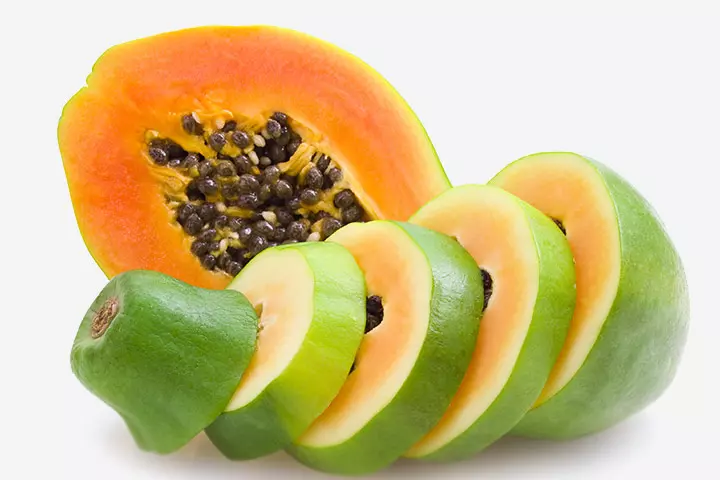
Papaya is a healthy food, but you should only eat a ripe one. Raw or green papaya contains a high concentration of latex and can trigger uterine contractionsiPeriodic tightening of the uterine muscles during pregnancy or childbirth . The unripe papaya latex can induce labor and abortion (2). Hence, papaya is a prominent food to avoid during pregnancy.
Vandana Gujadhur, a Registered Dietitian Nutritionist, says, “Animal studies have shown that those rats that received unripe papaya and semi-ripe papaya produced uterine contractions, while those which received ripe papaya did not. Further human studies will be required to ascertain the ultimate risk of unripe papaya in humans.”
 Did you know?
Did you know?2. Eggplant
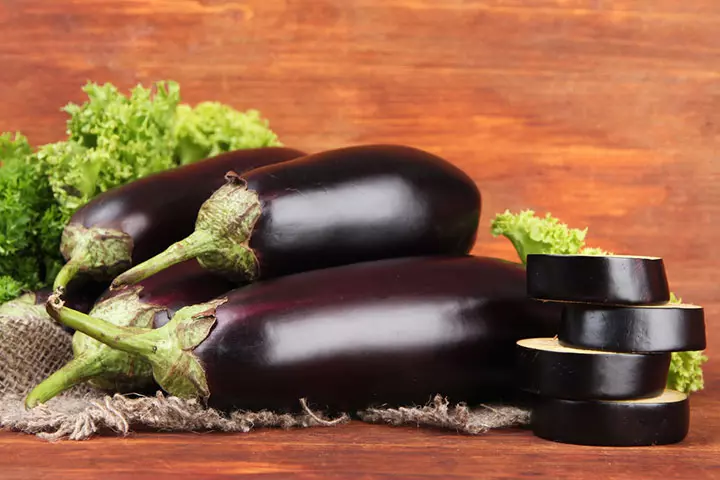
It is a veggie that enjoys great popularity across the globe. It contains phytohormonesiOrganic molecules that regulate plant growth and may impact specific physiological processes in humans that may have a diureticiA substance or medication used to expel excess water and salts through increased urine production effect. Brinjals can help cure premenstrual syndrome [PMS] and amenorrheaiAbsence of menstrual periods in a woman of reproductive age caused by hormonal imbalances, pregnancy, or certain medical conditions (3). However, raw eggplant contains a toxin, solanine, which might cause allergies. Consuming cooked eggplant in moderate quantities is safe. Gujadhur adds, “Including well-cooked eggplant can be nutritious for pregnant and lactating mothers.”
3. Pineapple
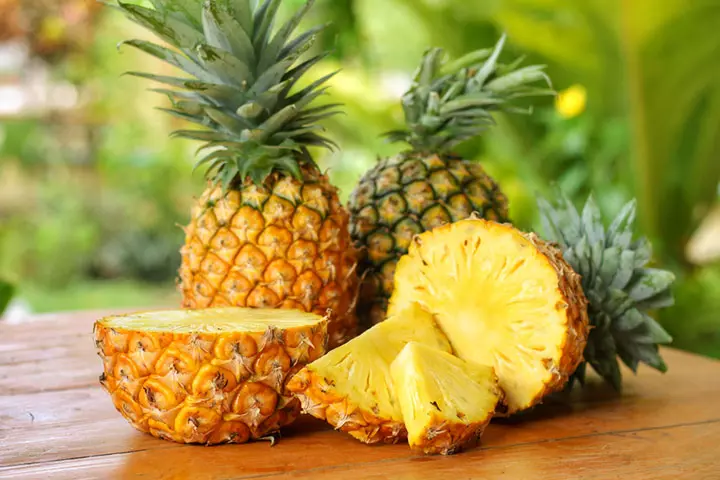
It is believed that consuming high amounts of fresh pineapple can induce labor. The enzyme bromelain present is linked to increasing uterine contractions in animal studies. Gujadhur suggests, “If you are concerned about bromelain, then cooking the pineapple destroys this enzyme, and you can safely enjoy them.”
4. Fennel and fenugreek seeds
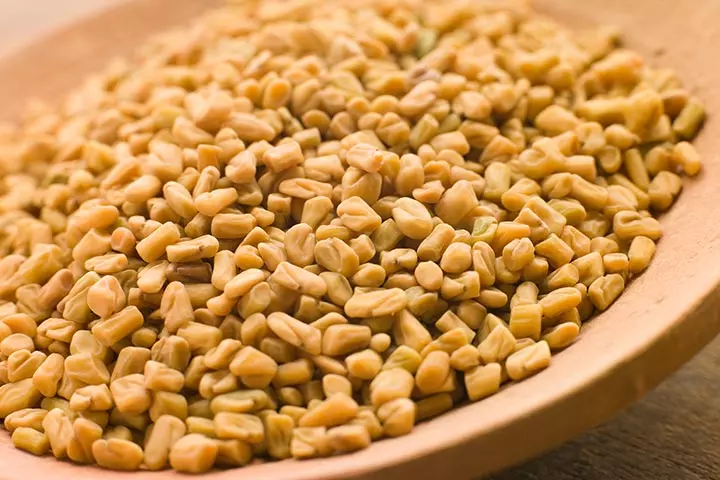
In many Indian homes, the elders in the family advise a new mother to consume fenugreek seeds and fennel in the form of a laddoo or some other variation. Methi dana or fenugreek seeds and fennel or saunf can stimulate menstruation, correct a hormonal disorder, cleanse the uterus and boost milk production. The two spices contain phytoestrogensiPlant-based compounds that mimic estrogen hormone activity in the body , which may induce uterine contractions (4). You can safely use a pinch of the two popular ingredients while cooking. However, avoid large amounts of it during pregnancy.
5. Ajinomoto (Monosodium Glutamate)
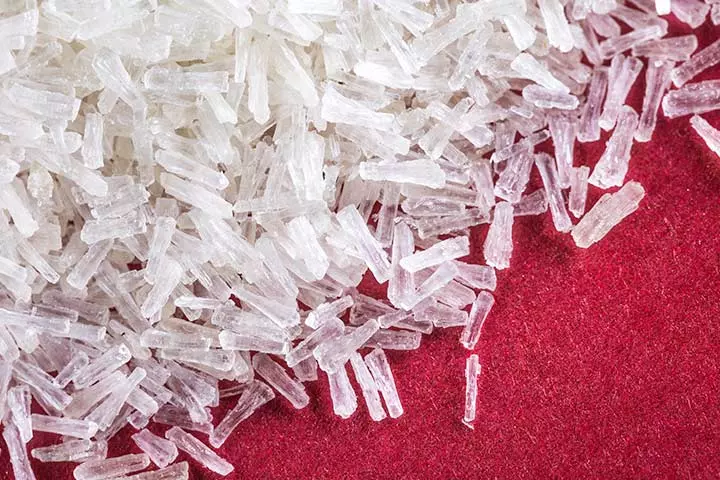
Many expecting women crave Chinese food during pregnancy and the one ingredient that’s commonly used as a flavor enhancer in Chinese cuisine is Ajinomoto. Even though it is not an Indian spice, Ajinomoto is used in rustling up street-side Chinese dishes in India. Owing to its extensive use, Ajinomoto has become a common household cooking ingredient. However, excessive consumption of Ajinomoto may adversely affect the development of the fetal brain, based on a study done in mice. Gujadhur says, ”The amount given to the mice was very high, much higher than what you see in one meal.” Hence, you should consume in moderation to be on the safe side and safeguard the growth and development of your precious baby (5).
6. High Mercury Fish
Fish is an essential part of the Indian diet during pregnancy due to its high omega-3, iron, iodine, choline, zinc, protein, vitamin B12, vitamin D, and selenium. All these nutrients are considered to aid in the development of the nervous and immune systems, promotion of bone health, control of weight gain and obesity, and prevention of colon and rectal cancers. However, types such as king mackerel, marlin, orange roughy, shark, swordfish, bass, tilefish, tuna, bigeye, and etroplus suratensis (pearl spot) are some fish to avoid during pregnancy due to the high mercury content in them. They may be harmful to the brain and spinal development of your fetus. Alternatively, some safer low-mercury seafood and fish to eat during pregnancy are Indian salmon, Indian mackerel, pink perch, pomfret, herring, crab, prawns, and shrimp (6) (7) (8) (9).
 Research finds
Research findsFrequently Asked Questions
1. Which foods are harmful to pregnancy?
The American Pregnancy Association advises that it is best to avoid raw meats, soft cheeses, unpasteurized milk, unwashed fruits and vegetables, and raw eggs during pregnancy to prevent the risk of complications (10). During pregnancy, it’s crucial to prioritize food safety and steer clear of high-risk foods that may cause foodborne illnesses like toxoplasmosis, salmonella, and listeria infections. Apart from avoiding caffeine, alcohol, and tobacco, make sure to exercise caution when consuming these foods.
2. What herbs and spices should I avoid when pregnant?
According to recommendations by the American pregnancy association, certain herbs, including the saw palmetto, ephedra, pennyroyal, aloe, and ginseng could be unsafe for consumption when pregnant (11).
3. Which Indian food can cause miscarriage?
A cohort study on women in India revealed that certain foods (apart from raw papaya), including pineapple, wood apple, and raw eggplant, were associated with an increased risk of miscarriage when consumed during pregnancy (12).
Raw papaya, fennel and fenugreek seeds, eggplants, and raw sesame seeds are some Indian foods to avoid during pregnancy. Some of the ingredients in these foods may negatively impact the pregnancy or the growing baby. Also, some ingredients may trigger uterine contractions that could lead to miscarriage or early delivery, especially if consumed in excess amounts. You may also avoid Ajinomoto (monosodium glutamate), often used in Chinese and street foods, since it may cause issues with fetal brain development. Herbal teas or herbal supplements should also be avoided or at least discussed with a medical professional before including them in your diet. Maintain a balanced diet, exercise regularly during pregnancy for better health, and always seek a medical professional, especially a Registered Dietitian, to learn the safest food choices.
Infographic: Stay Aware Of What You Eat During Pregnancy
Diet plays an important role during pregnancy and ensures the well-being of both mother and baby. This is why it is crucial to know which foods to eat and which to avoid during this phase. Through this infographic, we share a list of foods to be avoided when expecting. Illustration: Momjunction Design Team
Illustration: Popular Indian Foods To Avoid During Pregnancy
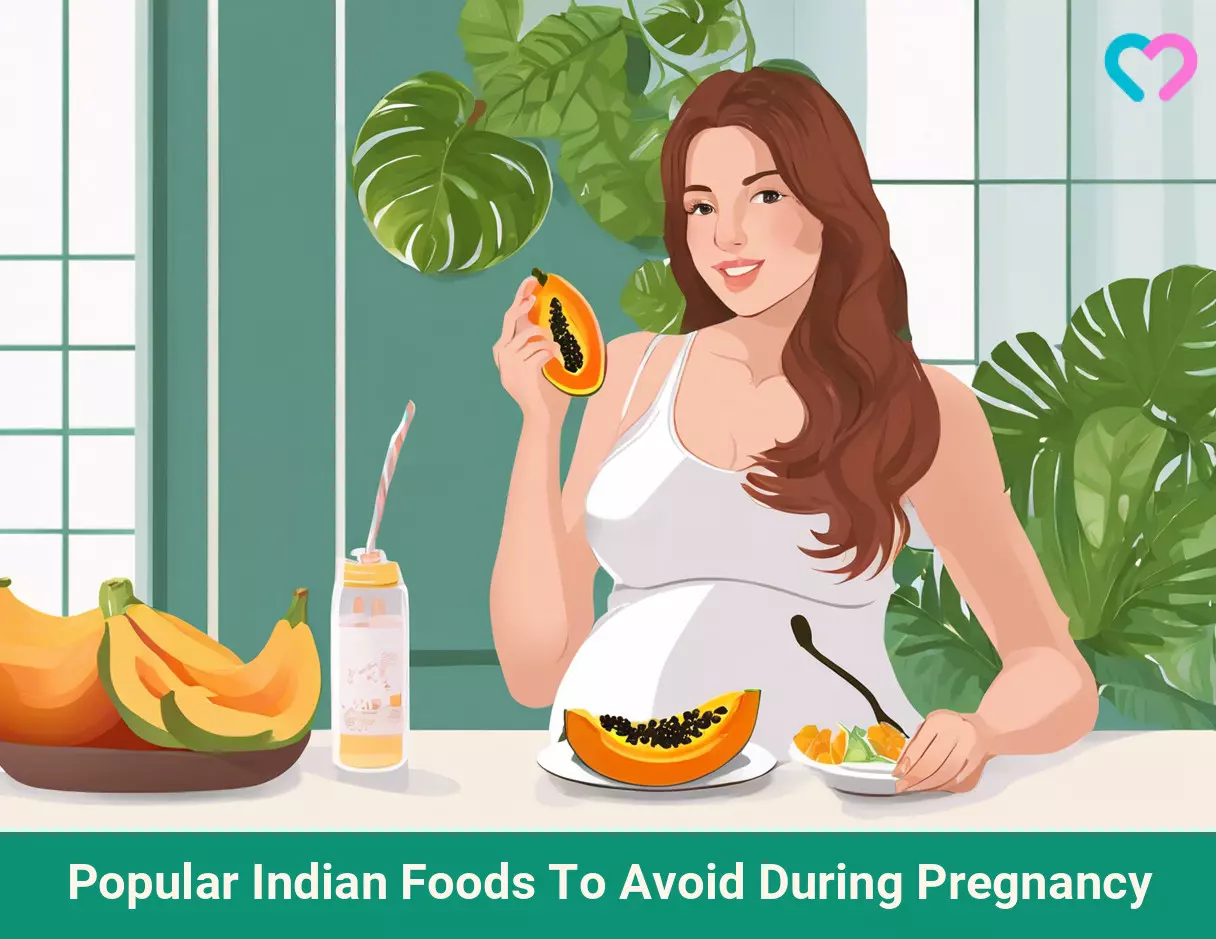
Image: Stable Diffusion/MomJunction Design Team
References
- Lakshmi G; (2013); Food Preferences And Taboos During Ante-Natal Period Among The Tribal Women Of North Coastal Andhra Pradesh.
https://citeseerx.ist.psu.edu/document?repid=rep1&type=pdf&doi=94ed95c57944ee604653dedfa89b3b93057dcd27 - Pregnancy: Avoiding Papaya.
https://healthy.kaiserpermanente.org/health-wellness/maternity/second-trimester/weeks-25-27 - Frances Betty Fraikue; (2018); Review of Historical Health Benefts and Uses of Eggplants by Humankind.
https://www.researchgate.net/publication/323966778_Review_of_Historical_Health_Benefts_and_Uses_of_Eggplants_by_Humankind - Ramzi Shawahna; (2018); Which Benefits and Harms of Using Fenugreek as a Galactogogue Need to Be Discussed during Clinical Consultations? A Delphi Study among Breastfeeding Women Gynecologists Pediatricians Family Physicians Lactation Consultants and Pharmacists.
https://www.ncbi.nlm.nih.gov/pmc/articles/PMC5937604/ - Monica Singh; (2015); Fact or Fiction? The MSG Controversy.
https://dash.harvard.edu/bitstream/handle/1/8846733/Sing05.pdf - Advice about eating fish.
https://www.fda.gov/media/102331/download?attachment - Mahesh Mohan et al.; (2012); Accumulation of mercury and other heavy metals in edible fishes of Cochin backwaters, Southwest India.
https://pubmed.ncbi.nlm.nih.gov/21822576/ - Know about your indian fish.
https://www.drpandadiabetes.com/Know%20About%20your%20Indian%20Fish.html#:~:text=treat%20Surmai%20as%20a%20delicacy,%E2%80%9CIndo%2DPacific%20Mackerel%E2%80%9D.&text=As%20you%20can%20see%2C%20Surmai,for%20being%20high%20on%20mercury - Mercury in fish.
https://oehha.ca.gov/media/downloads/fish/fact-sheet/hgfactsnontechnical.pdf - Foods to Avoid When Pregnant
https://americanpregnancy.org/healthy-pregnancy/pregnancy-health-wellness/foods-to-avoid-during-pregnancy/ - Herbs and Pregnancy
https://americanpregnancy.org/healthy-pregnancy/is-it-safe/herbs-and-pregnancy/ - Hannah G Lunkenheimer et al. (2021); Tradition taste and taboo: the gastroecology of maternal perinatal diet.
https://www.ncbi.nlm.nih.gov/pmc/articles/PMC8718855/ - Deboshree Ghosh and Suvendu Ghosh; (2018); Forbidden Foods for Healthy Pregnancy.
https://www.researchgate.net/publication/328513110_Forbidden_Foods_for_Healthy_Pregnancy
Community Experiences
Join the conversation and become a part of our nurturing community! Share your stories, experiences, and insights to connect with fellow parents.
Read full bio of Vandana Gujadhur
Read full bio of Ria Saha
Read full bio of Swati Patwal
Read full bio of Lorraine Teron







